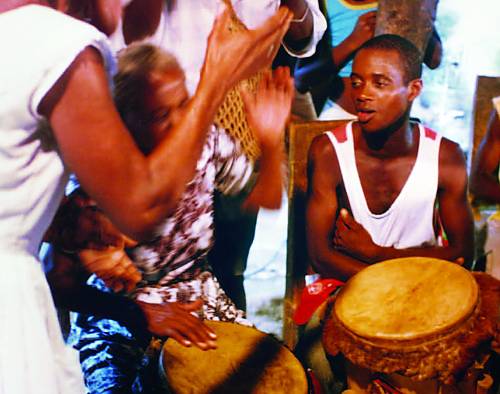Cultural space of Palenque de San Basilio
Inscribed in 2008 (3.COM) on the Representative List of the Intangible Cultural Heritage of Humanity (originally proclaimed in 2005)
The village of Palenque de San Basilio, with a population of about 3,500 inhabitants, is located in the foothills of the Montes de María, southeast of the regional capital, Cartagena. Palenque de San Basilio was one of the walled communities called palenques, which were founded by escaped slaves as a refuge in the seventeenth century. Of the many palenques that existed in former times, only San Basilio has survived until the present day. It developed into a unique cultural space.
The Cultural Space of Palenque de San Basilio encompasses social, medical and religious practices as well as musical and oral traditions, many of which have African roots. The social organization of the community is based on family networks and age groups called ma kuagro. The kuagro membership comes with a set of rights and duties towards other group members and entails strong internal solidarity. Daily work and special events are jointly undertaken by all kuagro members.
The complex funeral rituals and medical practices are evidence of the distinct spiritual and cultural systems framing life and death in the Palenque community. Musical expressions such as the Bullernege sentado, Son palenquero or Son de negro accompany collective celebrations, such as baptisms, weddings and religious festivities as well as leisure activities.
Central to the cultural space of Palenque de San Basilio is the palenquero language, the only creole language in Latin America with a lexical Spanish basis and grammatical characteristics of Bantu languages. The language constitutes a vital factor in reinforcing social cohesion among community members.
The cultural space of Palenque is not only threatened by economic changes that affect local modes of production, but also by the armed conflict between Colombian paramilitary and local guerrilla groups. Outside Palenque, inhabitants are commonly subjected to discrimination and ethnic stereotyping leading to a denial of their cultural values.





